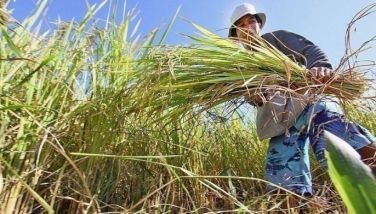Agri sector ready to reap benefits from modernization
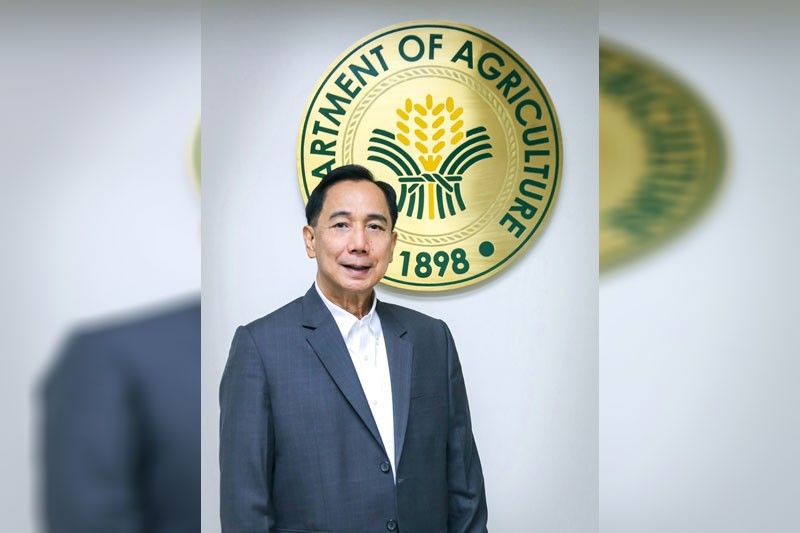
The Philippine agriculture sector may soon shed its economic laggard status as it is poised to reap huge benefits from modernization and industrialization, exports, farm consolidation and infrastructure development.
The appointment of William Dar as agriculture secretary in August has ushered in a new era of hope for the sector, which has been in the doldrums for decades.
Stakeholders have expressed high hopes that Dar could awaken the Philippine agriculture industry from its slumber.
Agriculture has been declining from 24 percent share of gross domestic product (GDP) in the 1980s, to only nine percent in 2015.
Dar aims to make the sector more productive, competitive, sustainable, resilient and inclusive.
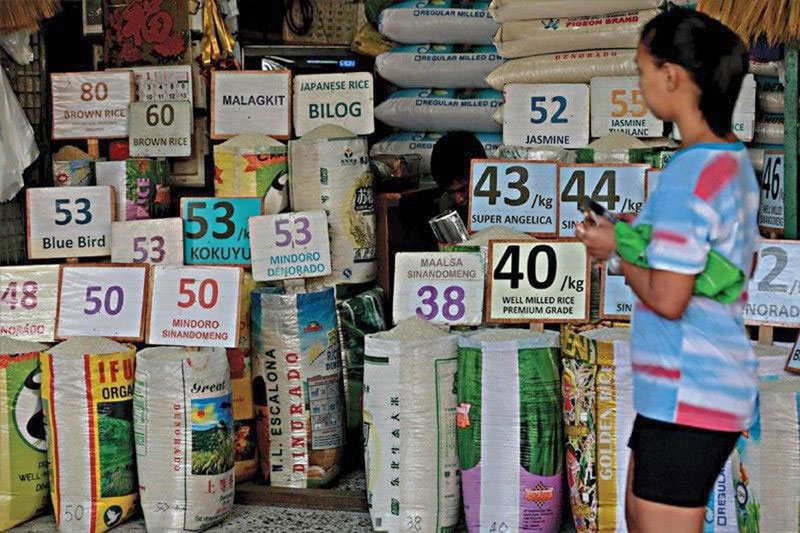
He is optimistic the industry will sustain its growth trajectory following a major rebound in the third quarter that saw production expand by 2.87 percent.
“We are hopeful that this favorable condition will be sustained into the fourth quarter to allow us to attain a full-year growth,” Dar said.
For the fourth quarter of 2019, Dar expects the sector to grow by 2.5 percent to three percent.
“The story of Philippine agriculture in 2019 is that of hope and a growing sense of optimism about the future of the sector that has been – for the longest time – the biggest drag on our economy,” Dar said.
“There is also a sense of confidence that the twin goals of agricultural modernization and food security can finally become realities after several years of struggles rather than remain as mere aspirations,” he said.
While the third quarter performance could be considered a good start, the Agri chief admitted there is still so much to do especially with the remaining years under the Duterte administration.
“We inherited a sector that is in critical stage as it has unevenly grown this past decade. Poverty remains high, and rural and agricultural in nature,” Dar said.
“It is further compounded by the growing threats of a changing global climate and the impact of heightened globalization on our local agri-fishery, food and agribusiness industries,” he pointed out.
“We really have to think outside the box. We have to invent, innovate, reshape if you want to unlock the sleeping giant of the agriculture sector,” he said.
“With the right policy and right strategies and mechanisms, this sleeping giant can become the force with which more contribution to the gross domestic product can happen,” Dar said.
Dar said there is also a challenge to feed the country’s ever-growing population amid depleting land and water resources needed to produce food, as well as the growing number of aging farmers and shrinking base of farm workers.
Barely five months into office, Dar faced a number of challenges: plunging prices of palay (unhusked rice) and the highly contagious African swine fever (ASF) virus.
Palay prices drop amid trade liberalization
The implementation of the Rice Tariffication Law has pulled down the prices of palay in most areas, falling to as much as P7 per kilogram due to a deluge of imported rice.
Rice is a staple food in the country and the law is partly intended to spur imports in order to quell domestic unrest caused by inflation.
However, the influx of cheap imported rice resulted in a glut in the local supply which in turn dampened the prices of paddy rice.
As a solution, the DA tempered the high price of rice by increasing the National Food Authority’s unloaded stocks in the market as well as increasing its buying price.
NFA also raised palay prices by securing the commitment of local government units to bankroll their own local procurement and by increasing palay support price by as much as P2 per kilo.
As part of the opening up of the market, the government put up the Rice Competitiveness Enhancement Fund (RCEF).
Estimated to generate at least P10 billion a year, the RCEF is expected to give rice farmers the opportunity to retool and make rice farming in the country more productive.
To date, DA has visited a total of 12 regions for consultation and distribution of farm machineries and equipment, seeds, and other interventions worth P2.8 billion.
According to the DA, 50 of 57 target provinces have already received 465,000 bags of inbred rice seeds as part of the RCEF Seed Program.
Seed distribution is ongoing in the remaining seven provinces including 585 municipalities and cities.
The Agricultural Training Institute and other component agencies have already conducted trainings for specialists, trainers, farmers cooperatives and associations.
Around 15 percent or 8,945 scholarship slots had already been availed by farmers to date. Four learning sites were accredited by ATI and validation activities are still ongoing while 39 more learning sites are expected to be accredited.
Meanwhile, the Land Bank of the Philippines and the Development Bank of the Philippines released some P301.4 million in loans to 164 individual farmers and three cooperatives, providing them zero-interest, non-collateral credit.
On mechanization, the Philippine Center for Postharvest Development and Mechanization already identified 2,938 units of machinery based on the assessed needs of 620 FCAs who applied under the RCEF Mechanization component.
The distribution of machineries will start later this month and is expected to be completed within the first quarter of 2020.
Apart from all these, the government is in the process of finalizing the Philippine Rice Industry Roadmap, which reflects the industry’s strategic plan.
To help small rice farmers, DA forged a separate agreement with Land Bank and DBP to disburse the P3 billion Rice Farmer Financial Assistance (RFFA) to 600,000 rice farmers.
The unconditional cash transfer program aims to help farmers tilling a half hectare to two hectares of land.
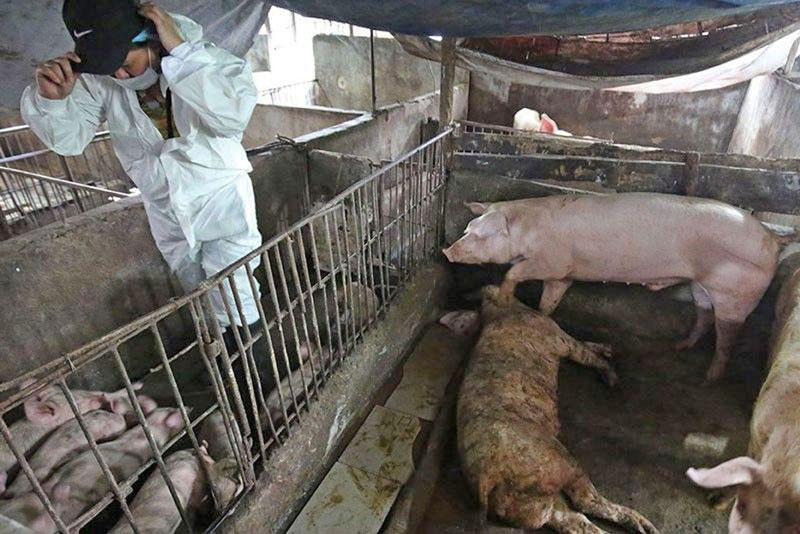
The entry of ASF
Since the first ASF outbreak report in August, the government has intensified border inspections of meat products for fear that entry of the deadly virus might cripple its pig farming industry.
Weeks into the ASF incident, the problem was not only dying pigs but also uncooperative traders, scared LGUs and worse, alarmed consumers who avoided buying pork which caused farm gate prices to plummet.
“Today, it’s no longer a technical issue but it has become a people issue, hog raisers that are hiding those affected pigs, traders, who are still, because of greed, they still are doing business, butchering affected pigs and selling the pork in other provinces in the country,” Dar said.
Latest DA data showed that losses in the hog industry had already reached P4 billion.
Affected areas totalled to 612 barangays in 73 municipalities in the nine provinces infected namely Bulacan, Pampanga, Nueva Ecija, Aurora, Tarlac, Rizal, Cavite, Pangasinan, and parts of Metro Manila.
Of the 612 barangays, 329 were ASF-positive while 283 underwent depopulation due to the protocol but tested negative for the disease.
A total of 147,334 hogs had been killed and disposed since the outbreak, bulk of which or 121,331 were from backyard farms.
To avoid durther spread of the disease, the DA has proposed to establish a national zoning plan to compartmentalize areas affected by the ASF.
Under the plan, Visayas, Mindanao and MIMAROPA are free zones while Ilocos, Cagayan Valley and Bicol are protected zones. Central Luzon and Calabarzon, on the other hand, are surveillance zones.
Bulacan and Pampanga remain the infected zones where the only movement allowed is within the two provinces.
“At the same time, we elevated our quarantine procedures, from the national and local levels, to effectively manage, control and contain the spread of ASF in other areas,” Dar said.
Since the outbreak of the ASF, majority of LGUs have banned the entry of hogs and pork products even from areas not affected by the disease.
The government has also allotted P1 billion to indemnify hog raisers whose swine population were culled. The budget can cover up to 200,000 pigs given the P5,000 per head payment.
Moving forward
Starting next year until 2022, the DA intends to work with greater vigor and laser-like focus to achieve its goals.
In particular, the DA aims to ensure the effective and proper implementation of various RCEF programs, including the continued validation of the farmers’ registry and completion of the National Food Authority streamlining.
It will also intensify its advocacy on farm consolidation to enable small farmers survive the onslaught of imported rice in the market.
“We will further enhance our disease prevention and surveillance systems from the national and local levels to protect our crop and animal industry from major diseases,” Dar said.
“In line with this, we will establish strong and functional animal disease diagnostic laboratories nationwide to better serve our livestock and poultry industries on biosecurity and food safety,” he added.
For next year, DA has proposed a P71.8 billion budget, up 12 percent in a bid to encourage small businesses and stimulate economic progress through competition.
“We intend to arrange for greater private and public investments and provide technical advice and support to agribusiness on production, research, and management concerns,” Dar said.
Dar said DA would continue to touch-base and strengthen its alliances with agri-fishery stakeholders and partners via direct consultations, with awareness in mind that their support and participation are vital and critical to the success of its programs.
“Programs and plans of action will be guided by the principles of good governance, transparency, consultative engagement and most importantly, with greater sense of urgency, as we continue to create a much better narrative for Philippine agriculture,” Dar said.
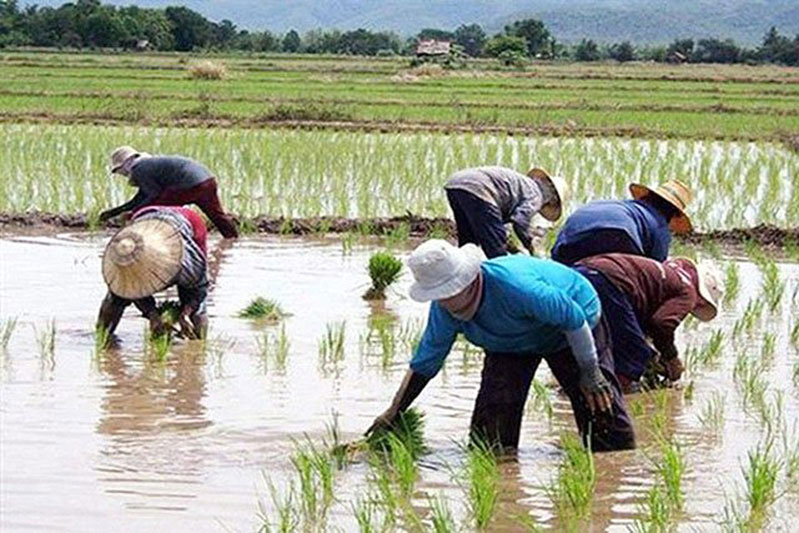
- Latest





















